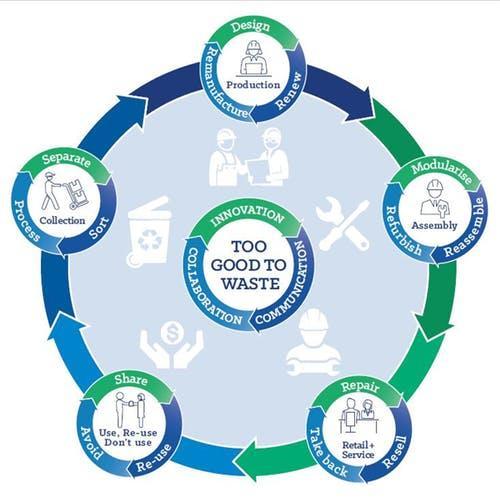
Have your say on the Draft Circular Economy Policy for NSW
The NSW Government is developing a Circular Economy Policy to deliver positive economic, social and environmental outcomes for the NSW community, and welcomes your feedback on the draft policy. The consultation on the draft Circular Economy Policy is open until 25 November 2018.
The circular economy is about changing the way we produce, assemble, sell and use products to minimise waste and to reduce our environmental impact. The circular economy can also be great for business; by maximising the use of our valuable resources, and by contributing to innovation, growth and job creation.
A circular economy is all about valuing our resources, by getting as much use out of products and materials as possible, and reducing the amount of waste we generate. For example, using recycled materials in manufacturing, repairing household goods before buying new ones, or repurposing items that are no longer used.
What would a circular economy look like to you? How could you get involved, and what support would you need?
Draft Circular Economy Policy and Discussion Paper
The NSW Government has released a draft Circular Economy Policy which outlines the principles and ideas that can help to shape our approach to resource use and waste management in NSW.
We have also drafted a Circular Economy Discussion Paper, which explains these circular economy principles and how they play out around the world.
Have your say
Consultation on the draft Circular Economy Policy is open from 22 October to 25 November 2018.
Have your say on the draft Circular Economy Policy and Discussion Paper
What are the next steps?
All submissions will be reviewed and used to finalise the Circular Economy Policy. An Implementation Plan will then be developed that sets out how we will work with business and local communities to make the most of our resources and move towards a circular economy.
The NSW Government will work to embed circular economy principles into Government decision making. It will also continue to work with other State and Territory Governments and the Federal Government to advocate for and work on cross-border actions that can help transition to a circular economy.